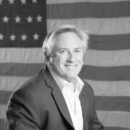Would you believe that the happiest place on earth, home to Mickey, Minnie, Donald, and Goofy, exists because of life insurance? Animator Walt Disney needed a bank loan to finance his dream of opening a theme park. Turned down for a basic business loan, Disney turned to the accumulated values of his life insurance policies, taking out a policy loan. The proceeds from the policy were used to create the “Happiest Place on Earth”: Disneyland.
In 1930, Max Foster applied the same thinking by using the cash values of his life insurance policies to purchase an 80-acre farm in Modesto, Calif., which would become Foster Farms, one of the largest chicken producers in the U.S.
While a lot has changed since the days of Walt Disney and Max Foster, one thing hasn’t changed: the favorable tax treatment of life insurance cash accumulation and how it can help anyone, using the strategies of the ultra-wealthy, to create tax-free income.
There’s also a new twist on life insurance, one that allows for market-sensitive investing. It allows for investing in “the market” without taking losses: Zero is your hero. When the market turns down, as it inevitably does, you never lose, period.
Too good to be true?
Not according to the University of Michigan Coach Jim Harbaugh. Harbaugh became the top-paid college football coach in the nation (according to USA Today) by creating a deferred compensation package utilizing a type of cash-value life insurance called indexed universal life (IUL) insurance.
Not according to Wells Fargo, either. Would you believe that the nation’s third-largest financial institution, Wells Fargo, carries over $30 billion in cash values of life insurance on their corporate books?
What’s the story behind this particular asset and why are so many wealthy people using it?
The place to start is the tax-free treatment of life insurance. The IRS has preserved two unique aspects: the tax-free payment of death benefits and the tax-free build-up of cash values. (Of course, as with anything, there are no “absolutes,” so you always have to get guidance from your tax and insurance professionals.) Then there is the ability to take tax-free distributions from these policies, when properly designed.

IUL, the newest twist on life insurance, is a type of cash-value policy that has both a death benefit and an accumulation element. With an IUL, investments are not placed directly in the market, where they would be subject to a loss. Rather, they are put into a strategy that mirrors an index, such as the S&P 500, which allows the participant to realize all, or most of, the gains in the market. These gains are then locked in to protect against potential losses.
Just like in Harbaugh’s case, IULs appeal to professionals and business owners because of the advantages they provide. IULs allow cash value within the policy to grow tax free. IULs are funded with post-tax dollars, allowing clients to withdraw money tax free at any age, and create tax-free (off tax return) income at a future date.
In addition, when compared to an IRA or 401(k), IULs provide more flexibility. Unlike IRAs and 401(k)s, there is no limit on how much money can be added annually, as long as the added cash does not create a modified endowment contract, which is taxable. IULs allow for a high cash value at the beginning of the policy. There are no restrictions on when the money can be taken out, unlike an IRA.
Along with tax-free wealth building, IULs provide a source of financial security for your family in the event of death or disability. In an event of the death of the policyholder, the death benefit is received tax free by the beneficiary of the policy in a lump sum.
In the case of coach Harbaugh, an IUL was used to create millions in tax-free retirement. This was possible due to the growth of the cash value inside of the policy that increased his retirement funds, which are accessible tax free. Upon being hired at Michigan, Harbaugh entered an agreement in which the premium, cash value, and death benefit are split between two parties. This “split-dollar” agreement was funded by a cash-value life insurance policy—an IUL.
Wells Fargo uses IULs to fund various compensation arrangements for its key executives and retirees. The same is true for Bank of America.
IULs are a popular choice among those who would like the ups of the markets without the downs, as well as protection for their family after death. This makes IULs a comprehensive and flexible wealth-building option, one that can be tailored to each person’s financial plan.
People like Harbaugh are using the most advanced planning techniques and have access to the sharpest financial advisors in the U.S. Ask your insurance advisor to help you design an IUL for tax-free accumulation. No one has ever had too much tax-free income!
Martin Levy, CLU/RHU, is president and founder of CorpStrat, in Woodland Hills, Calif. CorpStrat is one of the largest insurance brokers in the Greater Los Angeles area, serving hundreds of companies. Marty is also a Lifetime Member of the Million Dollar Round Table, an elite group representing the top 1% of all insurance professionals in the U.S.















































